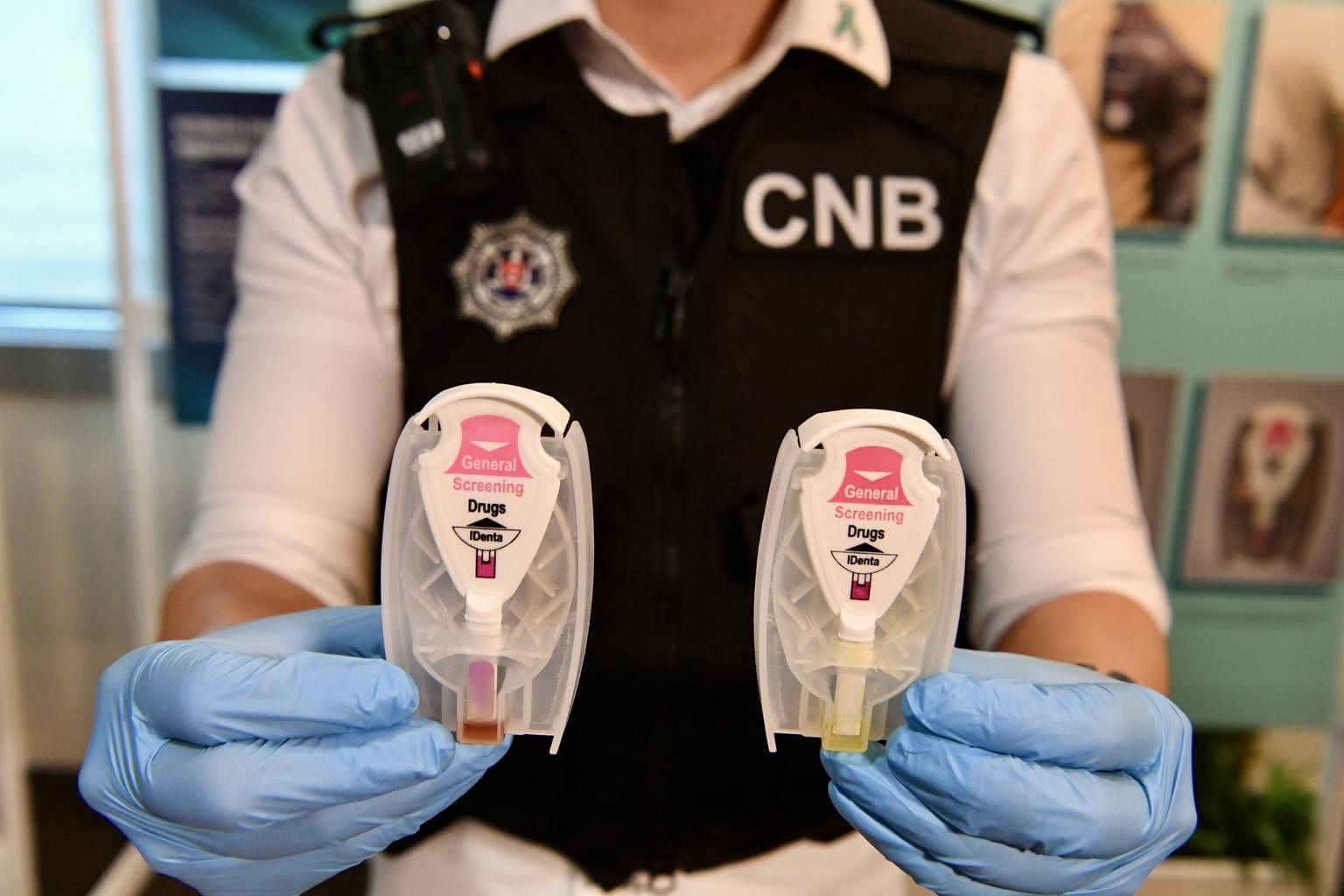41 S'poreans, PRs nabbed for suspected drug abuse overseas from Jan to Aug 2022
Sign up now: Get ST's newsletters delivered to your inbox

Prior to the Covid-19 pandemic, the figure was consistent at 126 arrests in 2017, 128 in 2018 and 132 in 2019.
ST PHOTO: DESMOND FOO
Follow topic:
SINGAPORE - Forty-one Singaporeans and permanent residents were arrested for suspected drug abuse overseas at various checkpoints from January to August 2022.
In releasing the latest figure, the Central Narcotics Bureau (CNB) noted there was a sharp decline from pre-pandemic years owing to Covid-19 border controls.
Most of these drug abusers who do not face other concurrent criminal charges are channelled towards rehabilitation, said CNB.
Prior to the pandemic, the figure was consistent at 126 arrests in 2017, 128 in 2018 and 132 in 2019.
In 2020, when international travel slowed from March, there were 30 arrests, and in 2021, there were six.
A spotlight was cast on the issue of consuming drugs abroad earlier in September after Olympic champion Joseph Schooling confessed to consuming cannabis in Hanoi while he was on short-term disruption from full-time national service in May.
His urine test was negative but he has been placed on a six-month urine testing regime.
Under the Misuse of Drugs Act (MDA), Singapore citizens or permanent residents who consume drugs overseas “may be dealt with as if that offence had been committed within Singapore”.
While a first-time drug consumption offender faces a jail term of between a year and 10 years and may also be fined up to $20,000, in most cases, drug abusers who do not face other criminal charges will not be jailed, said CNB.
“They will be channelled to a rehabilitation pathway. They may be placed on a direct supervision programme or committed to undergo treatment and rehabilitation at the drug rehabilitation centre... instead of being charged in court,” added the bureau.
It noted that those serving their NS with the SAF will be subject to the Singapore Armed Forces Act.
The MDA was amended in 1998 to allow for the law to be applied to those who consume controlled drugs overseas. The reason behind the change is to uphold Singapore’s strong anti-drug stance. CNB said this reasoning remains relevant today.
It added: “The risk that drug abusers could feed their addiction overseas, making it even more difficult for them to kick the habit, remains as real as ever given the permissive attitudes towards drugs in some countries and the easy access they may have to drugs there.
“The harm that local drug abusers would bring back to Singapore if they go overseas for their fix does not just stop at the borders. The impact will be felt by their families and loved ones back here.”

